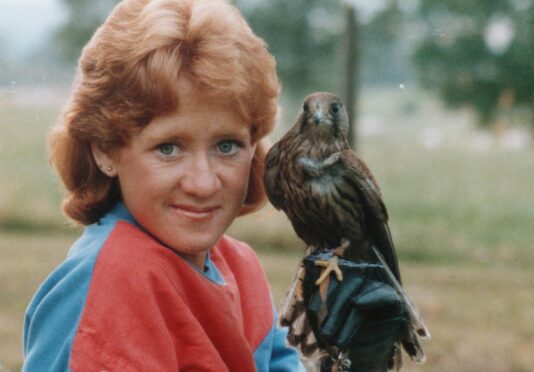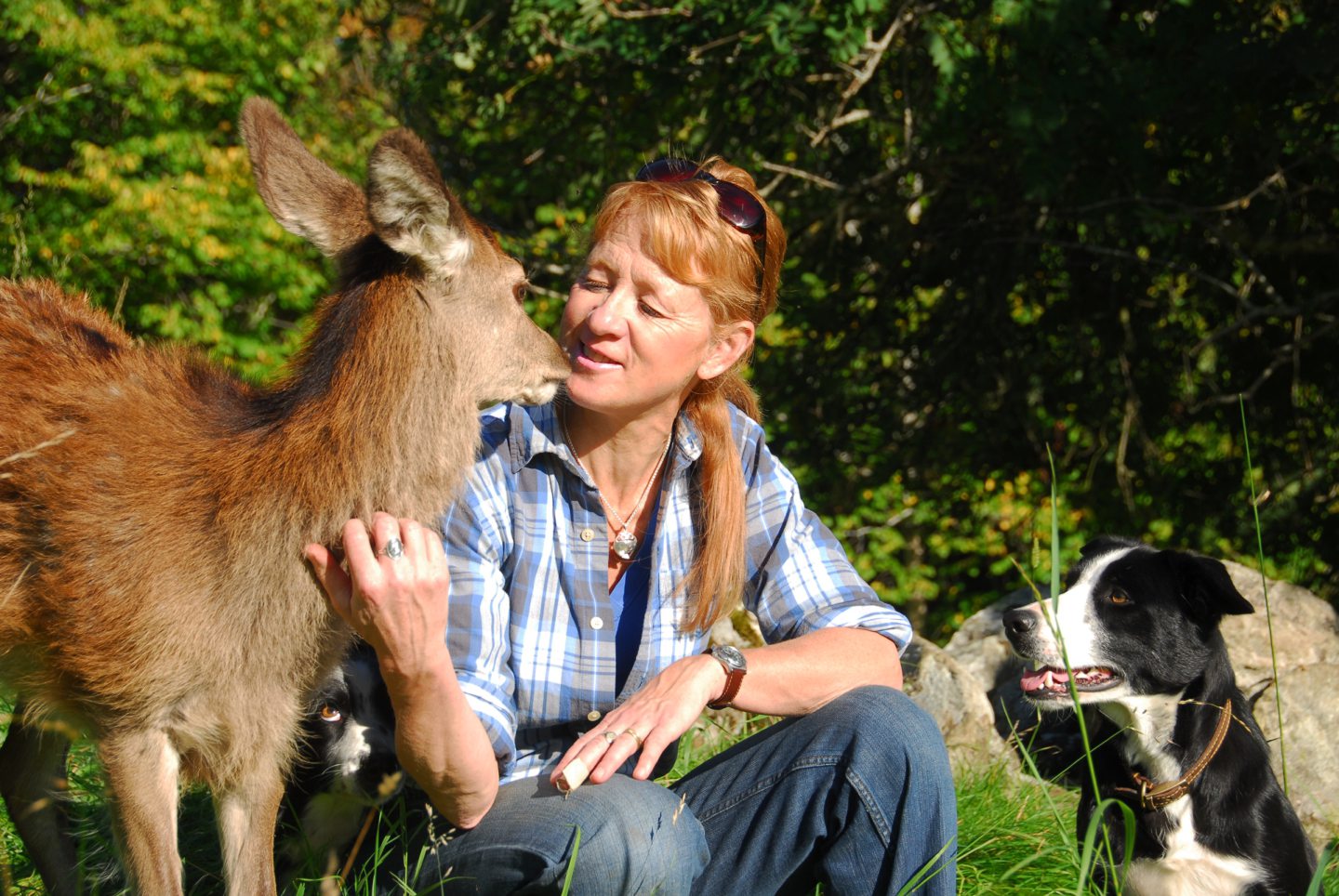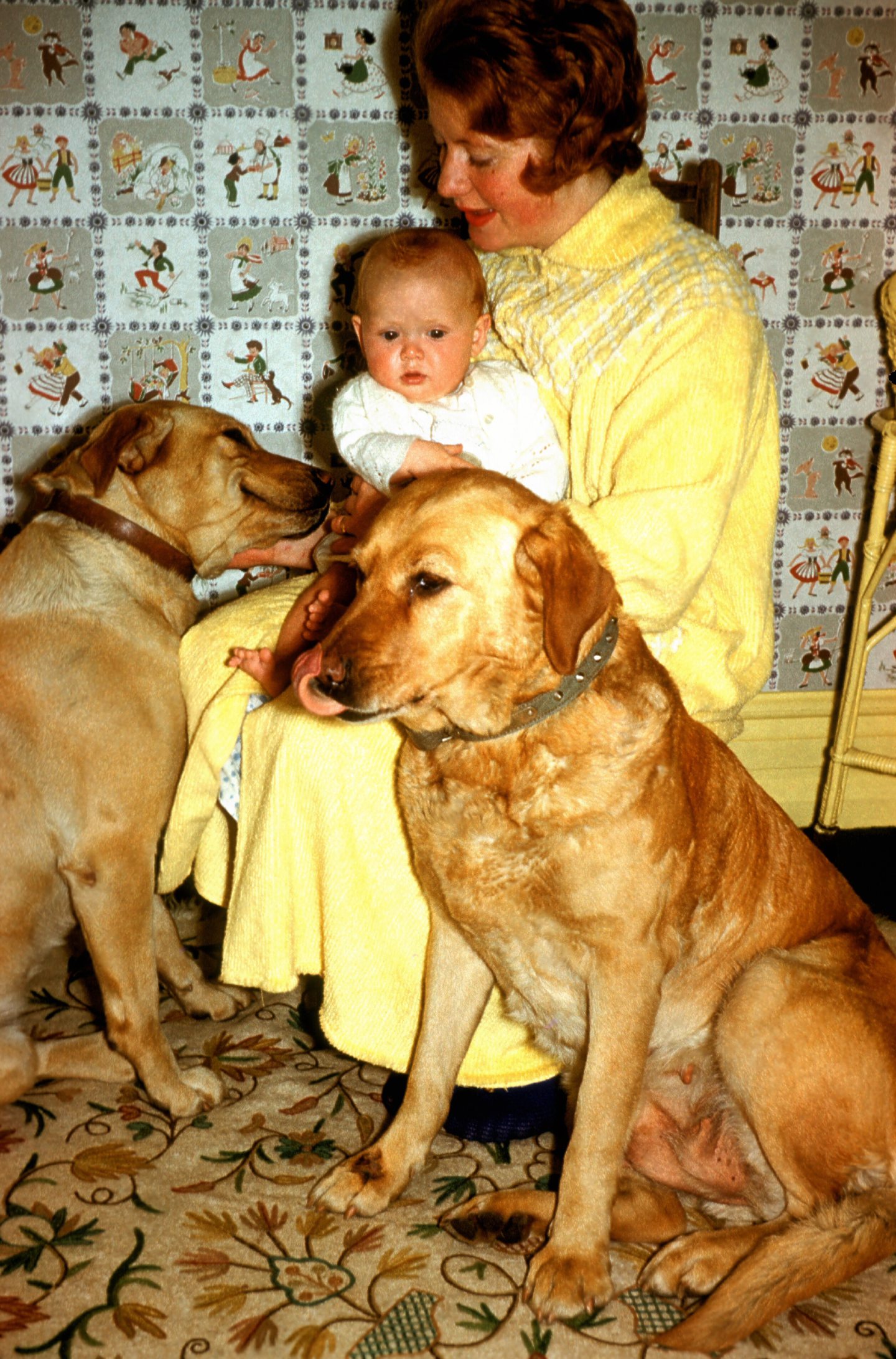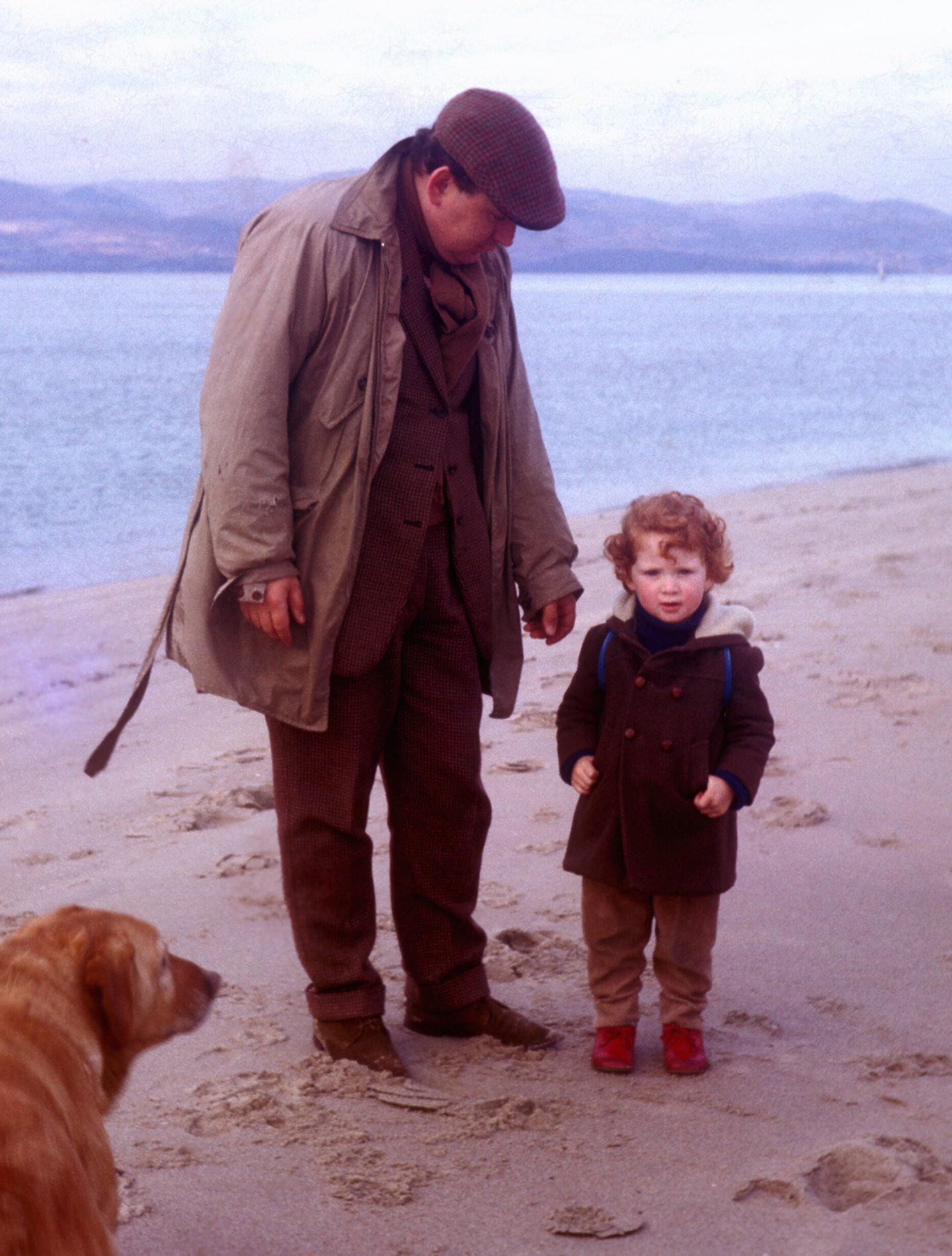
At 61, Polly Pullar has spent a lifetime writing the stories of others and of the natural world. She never thought to write her own. Now, finally, she has laid bare her soul in her memoir, spilling the secrets that scarred her family. It’s more than laying demons to rest – Pullar hopes she can help others who have experienced heartache like hers.
As she steels herself for the launch of The Horizontal Oak: A Life In Nature, the acclaimed wildlife rehabilitator, photographer and field naturalist who grew up roaming a remote corner of the wild West Highlands in the company of otters, seals and soaring eagles, admits to be being nervous.
Her book lifts the lid on the secret of her paternity, the suicide of her charming but troubled and alcoholic father, her attempt on her own life, and her tempestuous relationship with “Annie Ruadh” or “Red Annie”, the vivacious but volatile redhead mother she feared but could not help but love.
This is not a misery memoir. In pages peppered with humour, empathy and kindness, she revisits her pained past and the wild places and creatures that gave her succour – like the horizontal oak on the slopes of Ben Hiant on the Ardnamurchan peninsula.
Speaking from the small farm she shares with partner Iomhair Fletcher in Highland Perthshire, surrounded by her extensive and beloved menagerie, Pullar said: “I wrote this book soon after my mother died six years ago. It is a story that has burned in my heart. I hope it will bring strength to others in similar situations.
“There are very few families who do not experience having a raging alcoholic among them and that causes a lot of angst. So I wanted to write about Dad’s alcoholism and how we managed to cope with that, and when finally he took his own life, how it affected us, and how I in particular dealt with it.
“There is no doubt for me that if I hadn’t been so completely wedded and passionate about the natural world I don’t think I would have survived all that went on. The fact I could take to the hills and go out on the farm, or go on the shore or into the woods and fields, was my salvation. It was where I found peace and could get my head in order with the turmoil that was going on around me.”
Pullar’s first memories are of living in a rented portion of a crumbling country pile in the Wirral, a place her parents gave up to return to their Scottish roots: “They decided to buy a hotel in Ardnamurchan, at Kilchoan, which was a disaster for somebody who was an alcoholic,” she said.
Her nature-loving mother was happy there and, in the early days, so, too, was her tweed-clad dad, David Munro-Clark, a Cambridge graduate with “delusions of grandeur” and a penchant for pranks. For the young Polly, Ardnamurchan was a wonderland where her pet lamb Lulu followed her to school. It was a time of ceilidhs, hill climbs, and boat trips to spy orca and basking sharks. But she was just eight when the bubble burst. Her mother fell in love with local estate owner Geordie Ferguson and her father moved out, with the young Polly sent off to a series of boarding schools.
“I have suffered all my life from anxiousness since my parents separated,” she revealed. “It was as a result of going to stay with Dad at eight years old, and him being off the rails and having to look after him and play the adult figure.”
At school in Dunkeld, aged nine, she was homesick. “Dad used to turn up to take me out and he was drunk,” she recalls. “That’s when the anxiousness started in earnest.”
In the book, she relives dangerous car trips with an inebriated father at the wheel, but also remembers happier times. While a pupil at Gordonstoun in Moray, they scoured bookshops together and enjoyed picnics by the sea. Other occasions saw them climb Munros. But she writes: “These interludes were all too short,” adding she “always forgave him.”

After a move to run a pub in Exmoor, her father reached an all-time low, drinking incessantly. She remembers an amusing episode when an inspector from the AA – “Automobile Association” and not “Alcoholics Anonymous” she wryly notes – came to assess the hotel for promotion to a two-star venue only to be met by her flatulent and drunk dad, with hilarious results that left them with no stars at all. Her father could not be persuaded he had a problem: “To the disbelieving addict, denial is a river in Egypt.”
During a theatre and shopping break with her mother in London, she learned her father was “supposedly impotent” and their marriage had never been consummated. It felled her. Her mother admitted to affairs. “What my mother told me was extremely sad and explained a great many things. It also explained why my parents’ marriage had failed. As if living with my father’s drinking problem for more than 18 years had not been reason enough for her to leave him, it transpired that Dad had always been totally impotent. Totally? How could he be impotent if he was my father?”
Amid the “lies” and her mother’s “controlling and critical” behaviour, their relationship rapidly deteriorated. Ignoring her mum’s advice, she continued to help her father at his hotel. It was to lead to disaster. During a drunken row, he lashed out and she tumbled down stairs. “He accused me of causing all his problems: everything had got worse because of me; I was the reason for his utter misery,” she writes.
That same day, taking her dad’s sleeping pills and a flask of brandy, she disappeared into the woods among the red deer to end her life. “I sat down with my back against one of my favourite trees, and I remember, too, thinking what a dreadful waste it all was as I swallowed the horrible pills, washing them down with brandy – then all I remember is that the deer seemed to engulf me.”
It was Mother’s Day. She doesn’t know who found her, but she was taken to hospital and survived.
Pullar told the Post: “I took a massive overdose because I couldn’t cope with my parents. My father was completely and utterly off the rails and my mother and I had fallen out. Mum never really stopped holding it against me.”
Her father’s attempt would be successful. Twice-divorced Pullar revealed: “He came to the farm in Auchterarder where I was farming with my husband and then he left to go back south. That was the last we saw of him, because two days later he shot himself. In retrospect it was a sort of inevitability. He had his finger on the self-destruct button. He would put himself in situations he couldn’t handle and then be miserable about it.” He was 54 and she, 23.
“I remember walking down the street in Auchterarder after the funeral,” she said. “There was gossip going around that my father had just killed himself, but people crossed the road to avoid me. These were people who were good friends but they didn’t know what to say. And why? They don’t need to say anything. They just need to give you a hug and invite you for a cup of tea. It’s the same with alcoholism. People don’t want to talk about it but it is a nightmare for those involved.”
In the weeks that followed, feeling “hollow, exhausted and listless”, she found “a bedraggled” young kestrel in need of help. She named him Sorrel. She writes: “Things are so raw; Sorrel is my vital crutch and I nurture him with all I have.”
In the years that followed, the kind and supportive stepdad she had come to love also died from a heart attack. Then, just before Christmas 2015, her mother suffered a stroke. Before her death, three months later, Pullar was able to make her peace. Sitting by her hospital bed, she “thanked her for all the good things, and asked her to forget the bad”. In the book she remembers the funny times, as when Lulu the sheep followed her mother upstairs as she carried hotel guests’ morning tea trays, and how “new arrivals might find ominous trails of black currants leading to their rooms”.
Throughout her life, the author has clung to the joy of nature and of those she loved best – her maternal grandmother and “rock” Bo Skelton, with whom she shared a birthday and who died aged 90 shortly after the birth of Pullar’s cherished son Freddy, 34, who she describes as her “greatest achievement”.
She smiled: “Everyone has a story. I wrote mine because it has burned in my heart for a long time. Most families have secrets and aspects of their lives, or their past, or that of their relations they find hard to accept. Yet this is not unusual; what is perhaps unusual is our attitude towards things we find uncomfortable. I hope by writing this book it will bring strength to others in similar situations. Although I had a fraught, and in many ways tragic, relationship with my parents, particularly my father, both of them gave me so much. Most of all, they let me have freedom as a child, freedom to spend in nature. And that was the finest gift they could ever have given me. And I am truly grateful.”
The Horizontal Oak: A Life In Nature by Polly Pullar is published by Birlinn on July 21

Enjoy the convenience of having The Sunday Post delivered as a digital ePaper straight to your smartphone, tablet or computer.
Subscribe for only £5.49 a month and enjoy all the benefits of the printed paper as a digital replica.
Subscribe
